Vowel Recognition Phonics Worksheets for Ages 3-9
23 filtered results
-
From - To
Discover engaging vowel recognition phonics worksheets designed specifically for children ages 3-9. Our comprehensive collection helps young learners master essential vowel sounds through interactive activities, colorful visuals, and creative exercises. Each worksheet fosters phonemic awareness and boosts reading skills while making learning enjoyable. With a variety of formats, from fill-in-the-blanks to matching games, these resources cater to different learning styles, ensuring accessible phonics practice for every child. Ideal for home or classroom use, these worksheets support early literacy development and lay a strong foundation for future reading success. Start your child’s phonics journey today with our fun and educational activities!
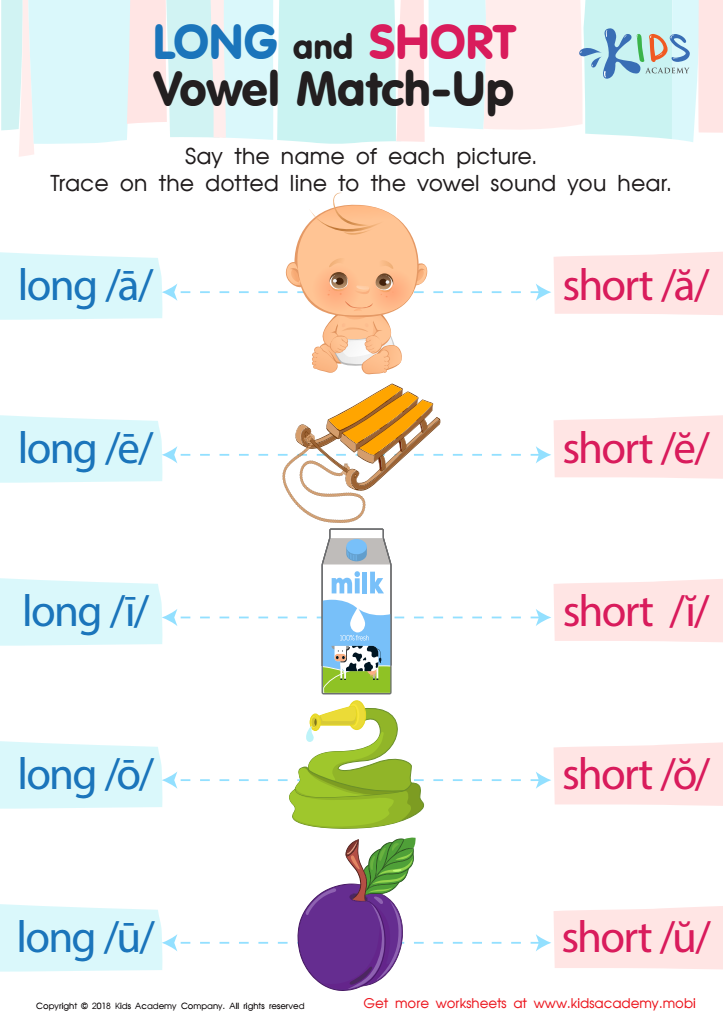

Long and Short Vowel Match up Reading Worksheet


Let's Check Long Vowels: Assessment Worksheet
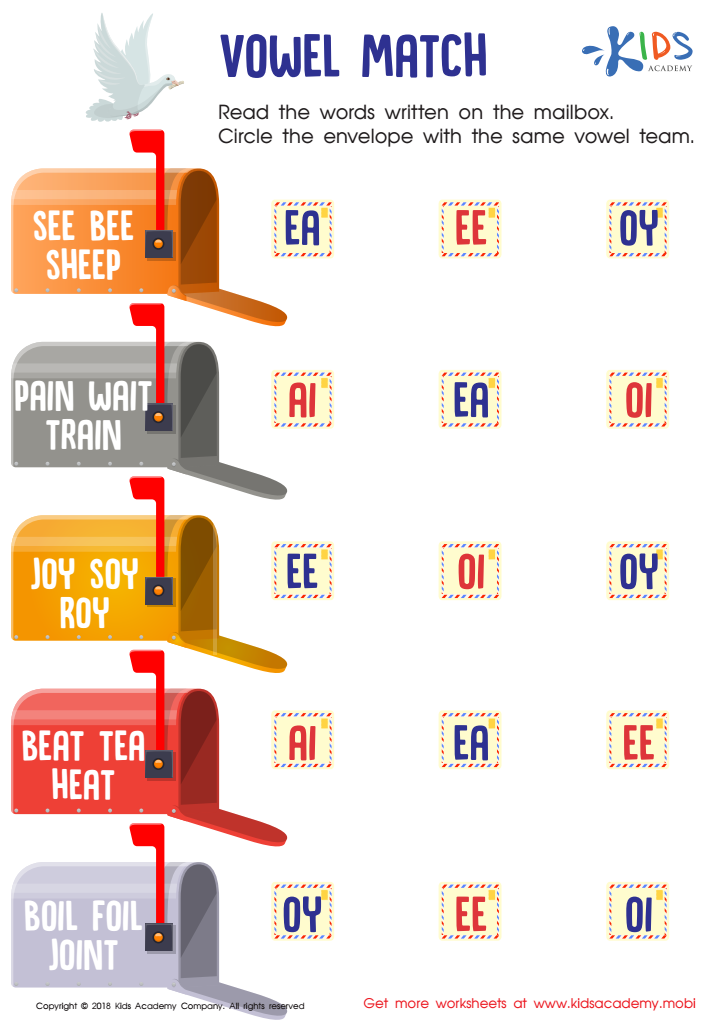

Vowel match Worksheet
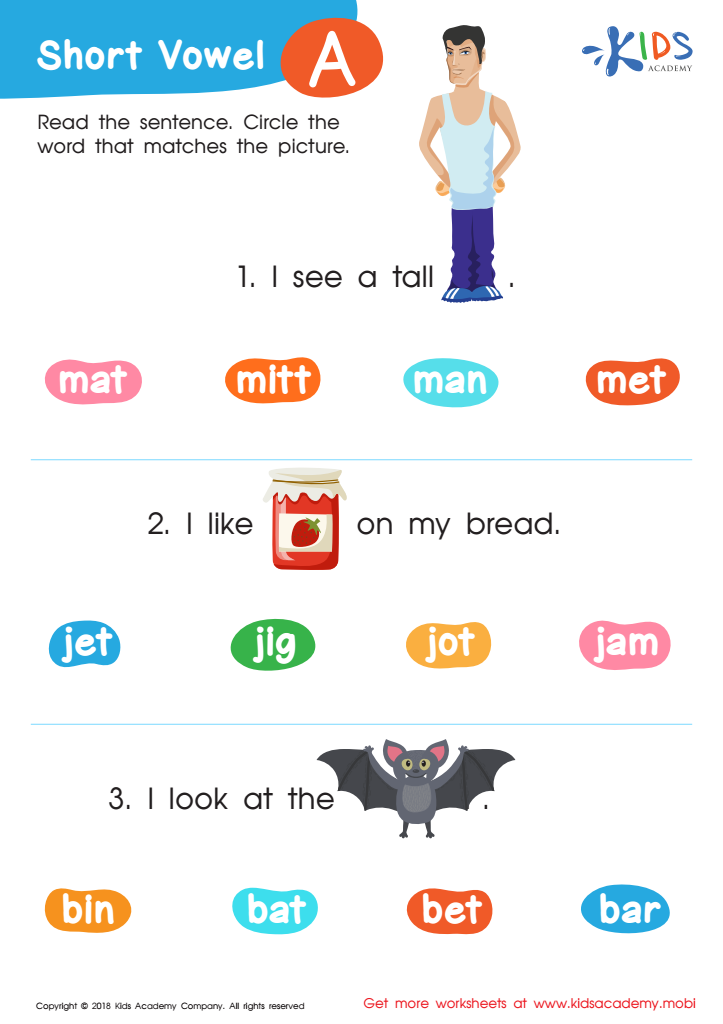

Short Vowel /a/ Worksheet
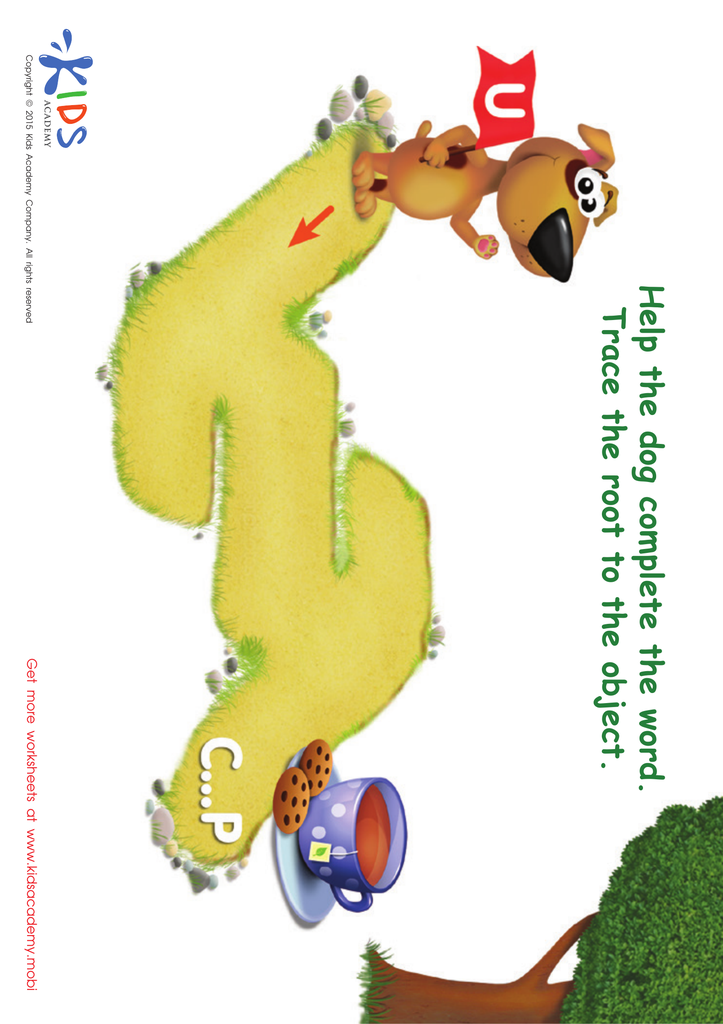

Short Vowel Sound U Worksheet Worksheet
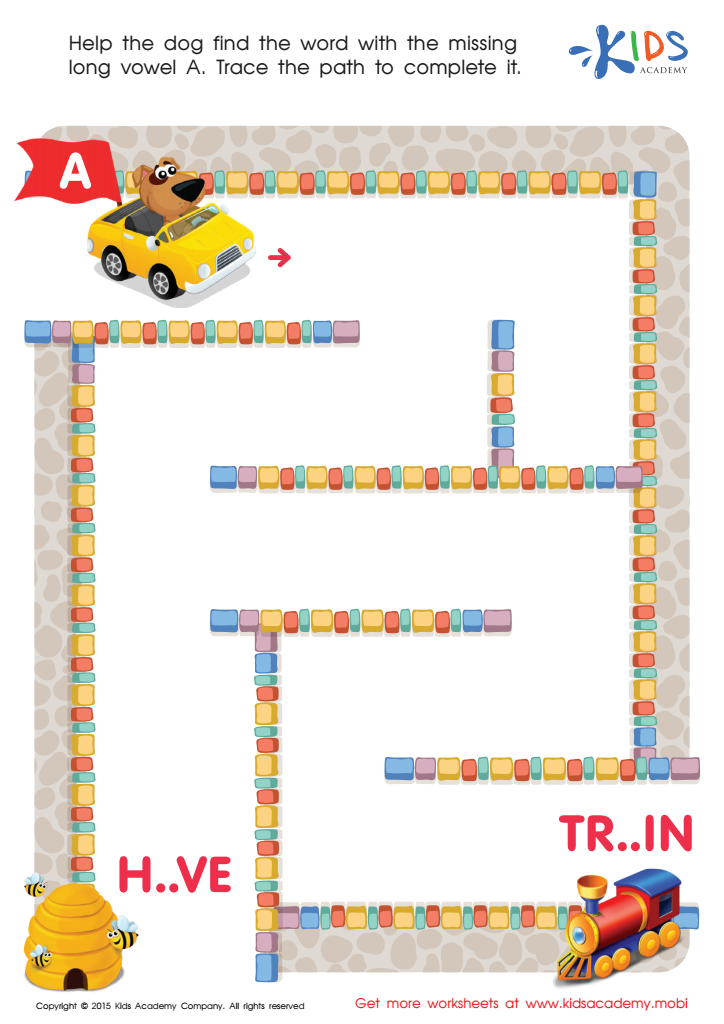

Long Vowel Sound A Worksheet


Short Vowels /e/, /i/, and /u/ Worksheet
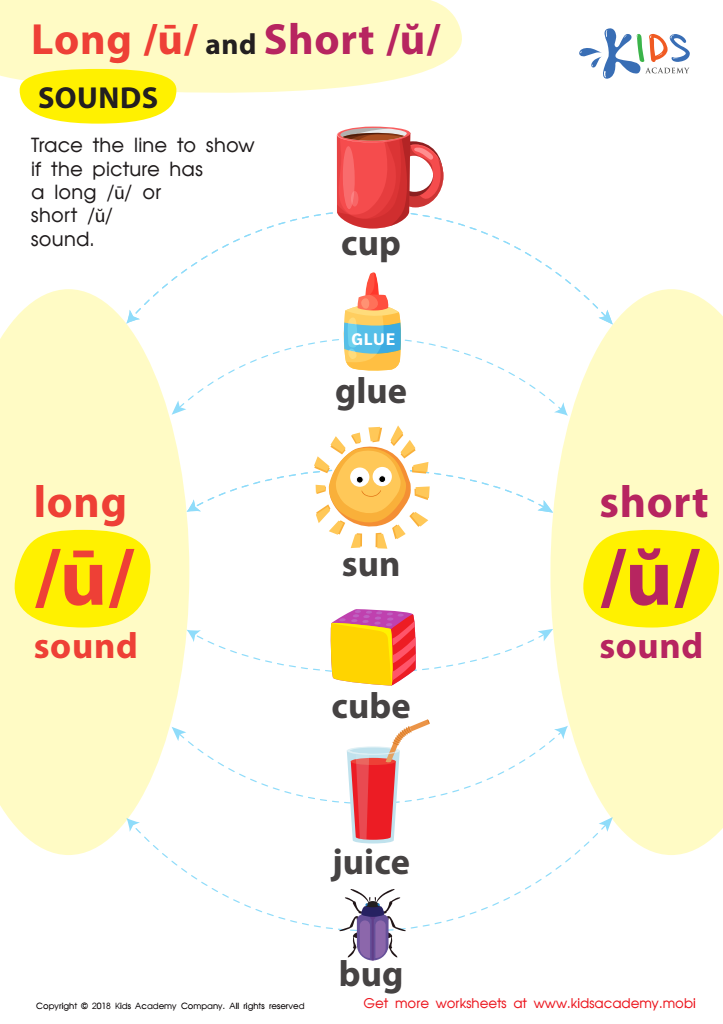

Reading: Long U and Short U Sounds Worksheet
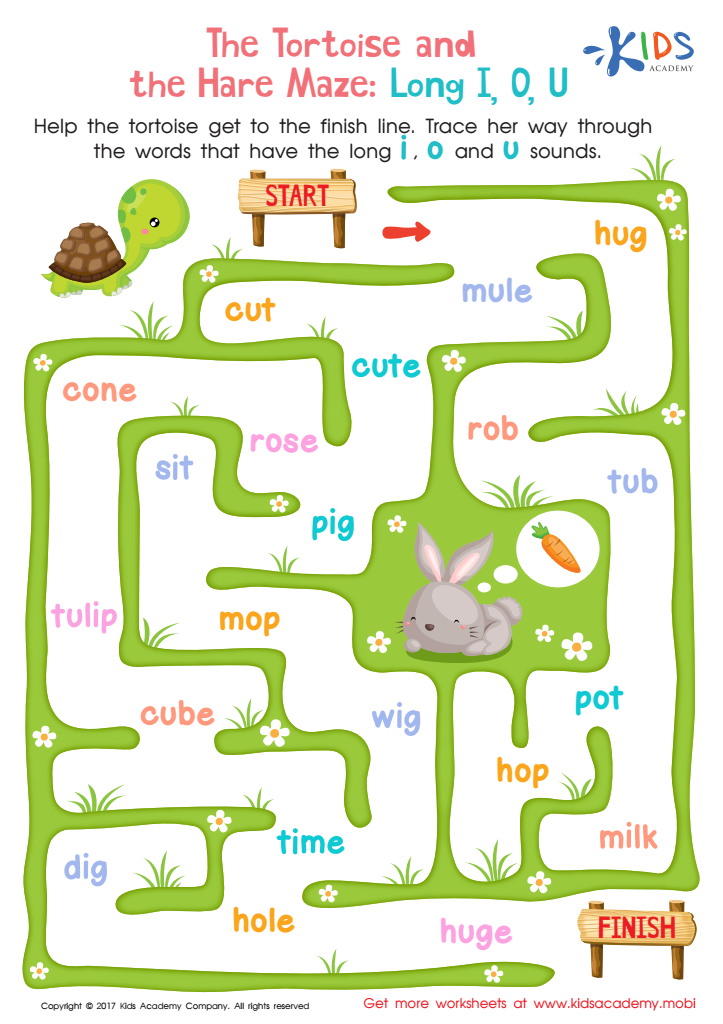

Long I, O, U Words Worksheet


Long Vowel Maze /o/ and /i/ Worksheet
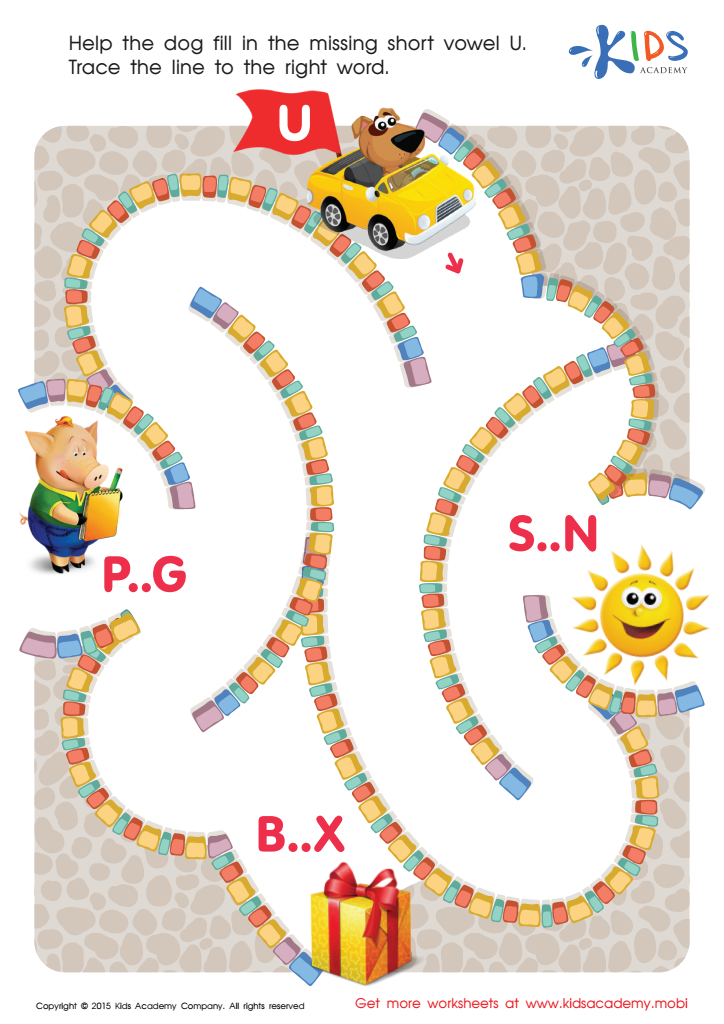

Short Vowel Sound U Worksheet


Short Vowel Eggs Worksheet
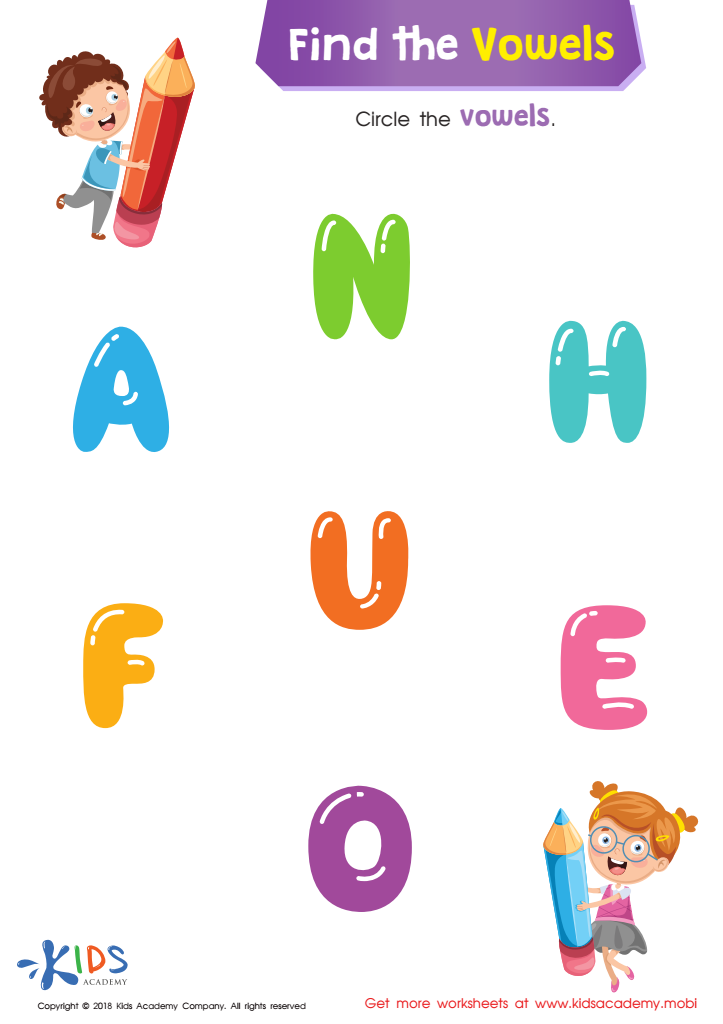

Find the Vowels Reading Worksheet
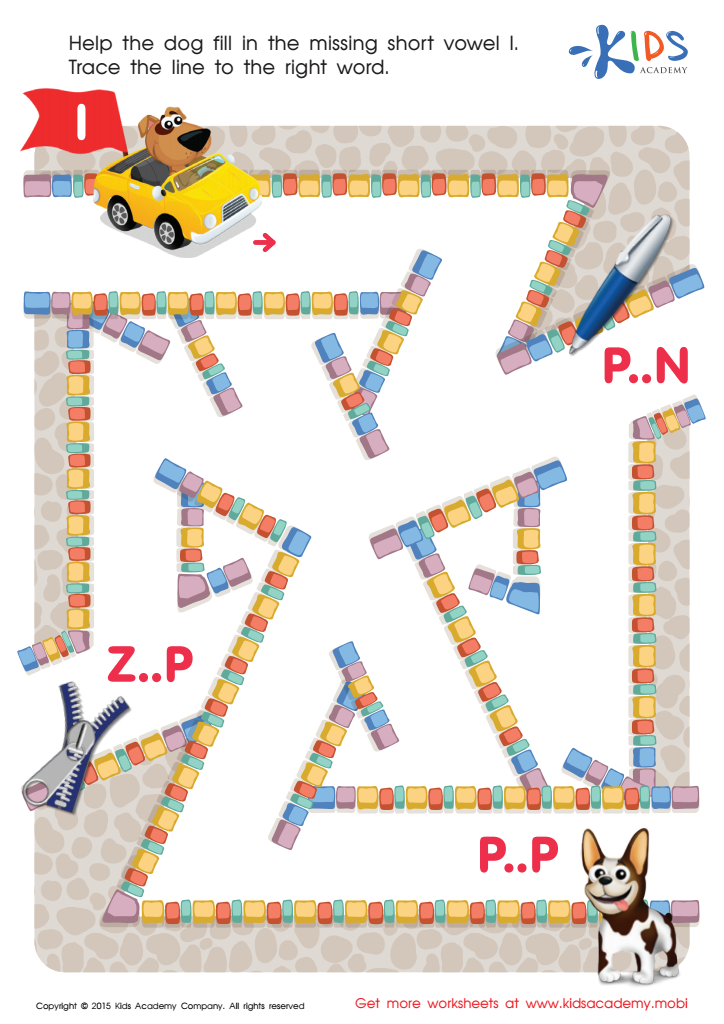

Short Vowel Sound I Worksheet
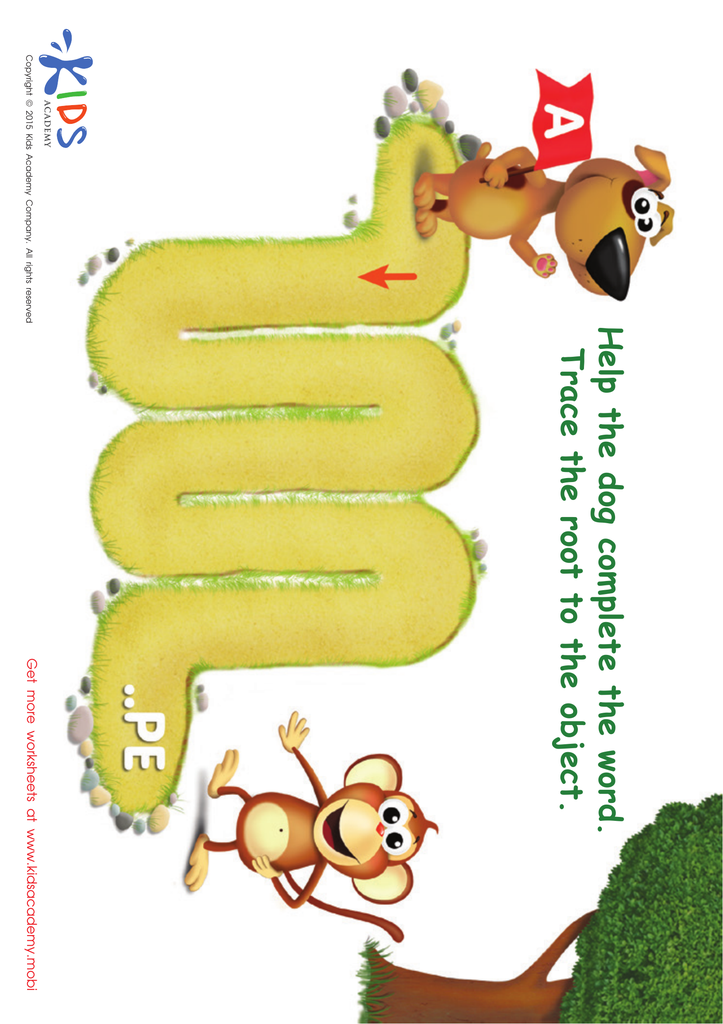

Long Vowel Sound A Worksheet Worksheet
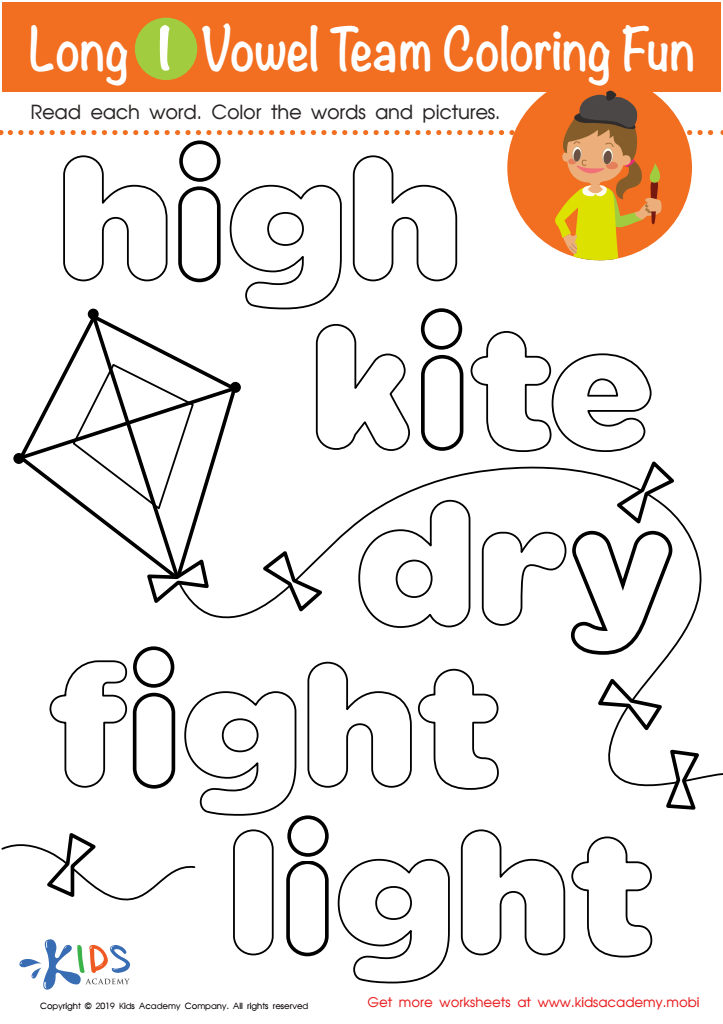

Long I Vowel Team Coloring Worksheet
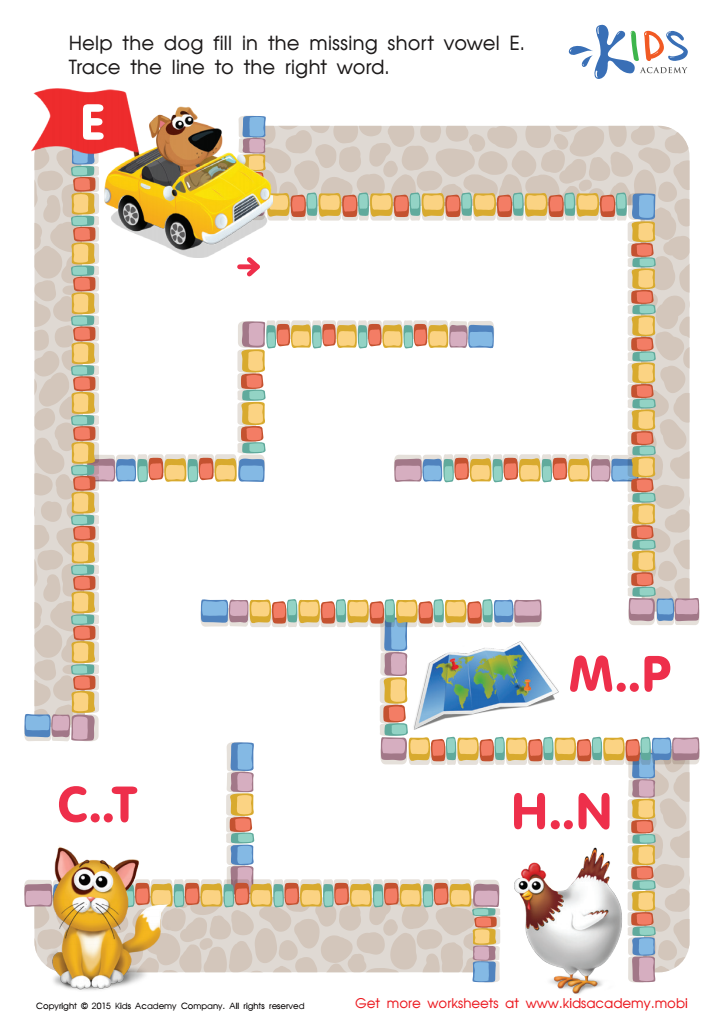

Short Vowel Sound E Worksheet
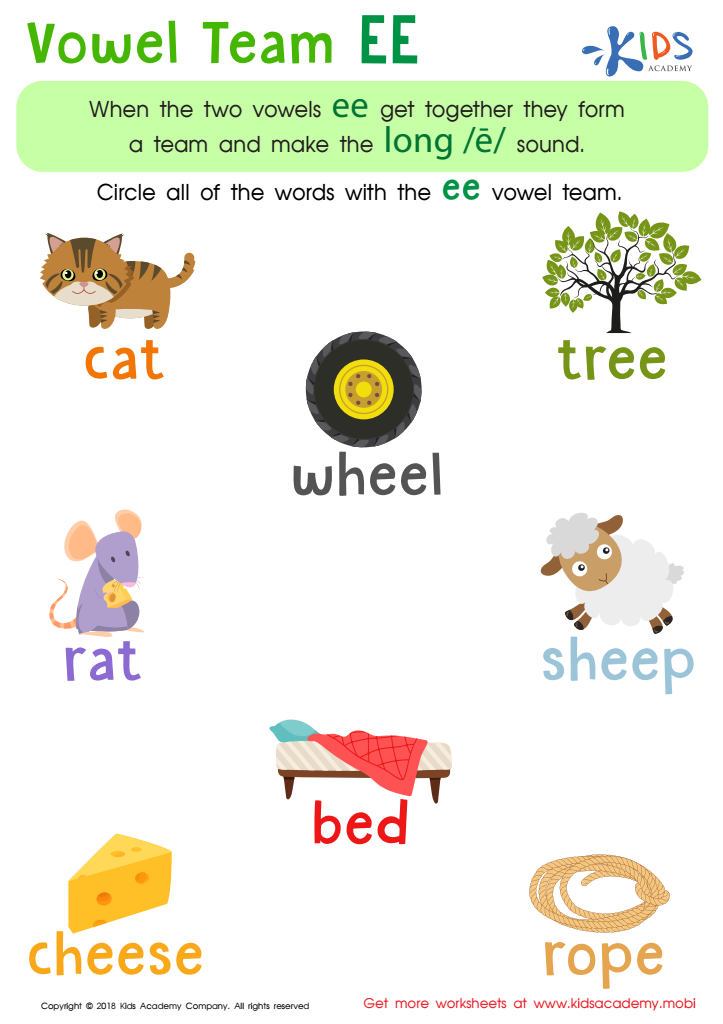

Reading: Vowel Team EE Worksheet
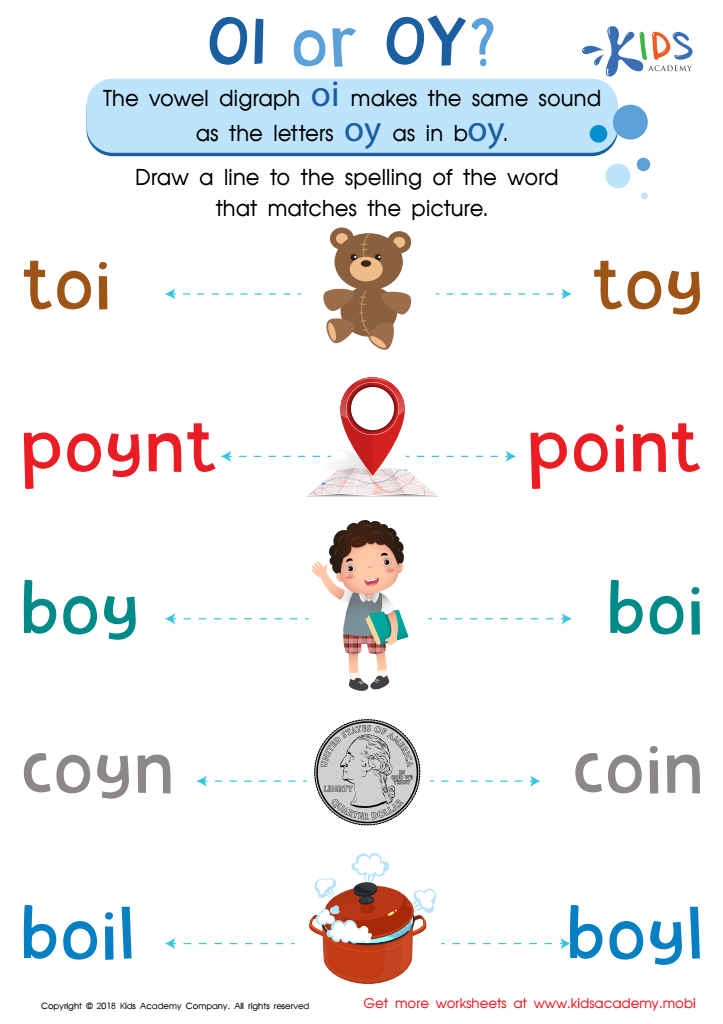

Reading: OI and OY Worksheet
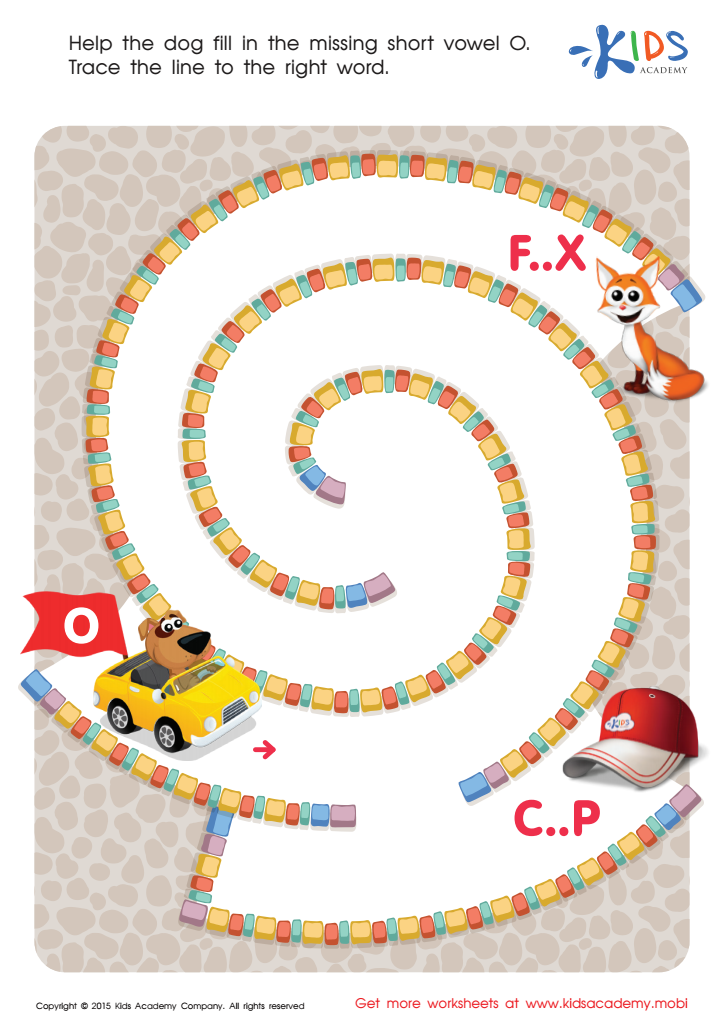

Short Vowel Sound O Worksheet


Long and Short Vowel Sentences: Assessment Worksheet
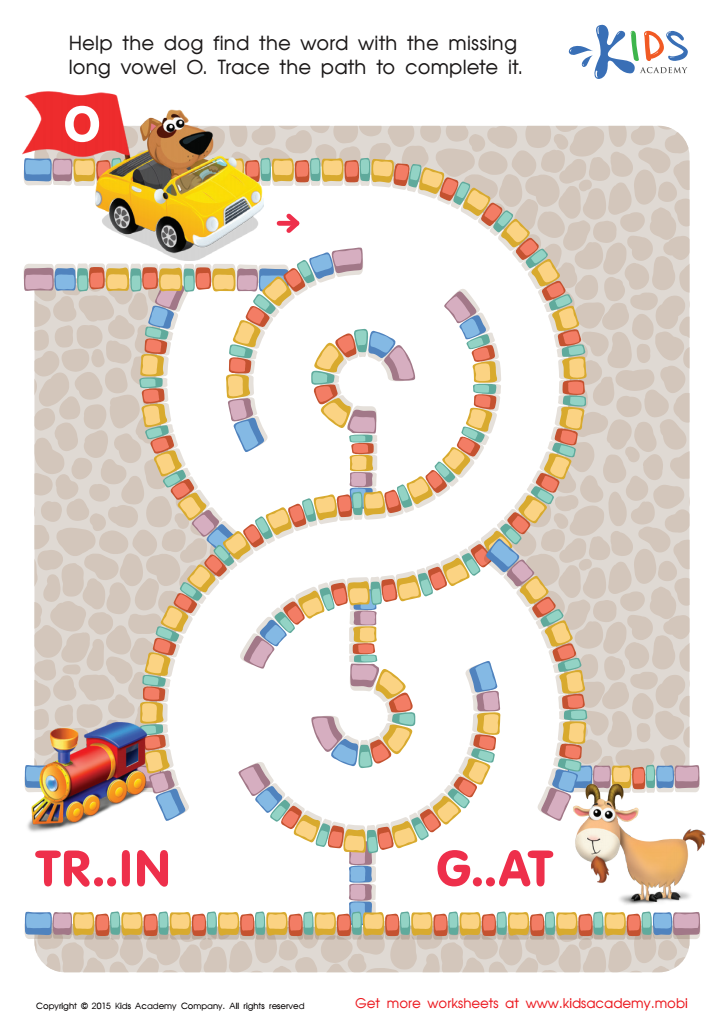

Long Vowel Sound O Worksheet
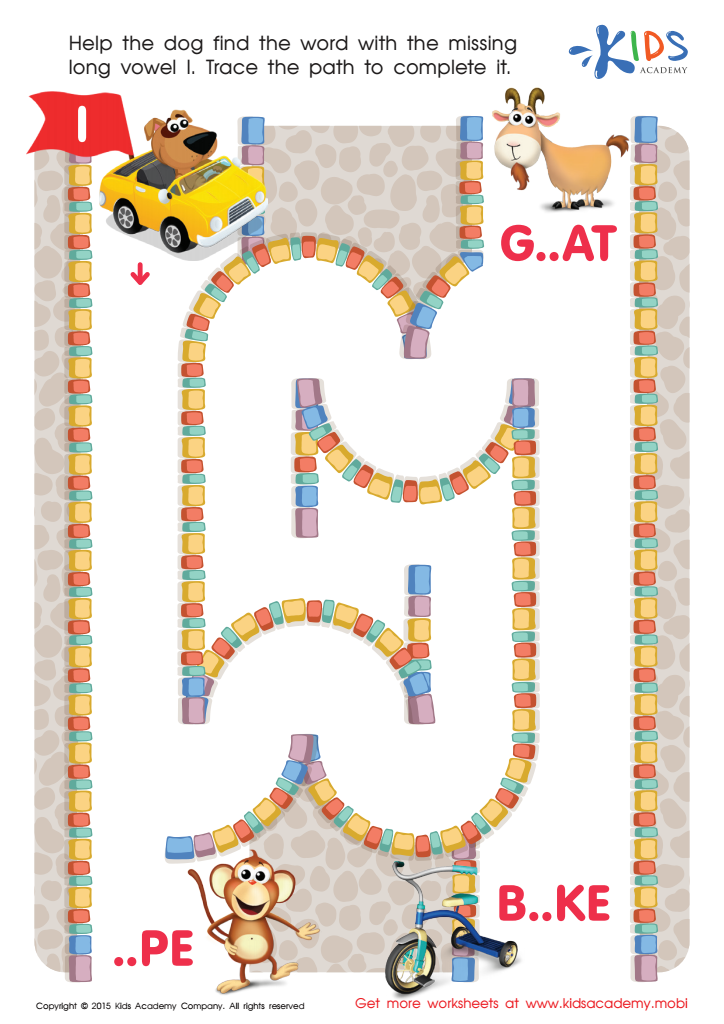

Long Vowel Sound I Worksheet
Vowel recognition phonics is a crucial foundational skill for children aged 3-9 as it significantly impacts their reading, writing, and overall literacy development. Understanding vowels—both short and long sounds—is essential for decoding words, which in turn supports fluency and comprehension. When children grasp the role of vowels, they become more adept at sounding out words, leading to increased confidence as they transition from phonemic awareness to reading.
Parents and teachers should prioritize vowel recognition because it serves as a building block for more complex literacy skills. Early mastery of vowel sounds can prevent future learning difficulties and reduce anxiety around reading. Additionally, incorporating vowel recognition into learning activities nurtures curiosity and engagement. It equips children with strategies to tackle unfamiliar words, which is important as they progress to more challenging texts.
Furthermore, fostering a solid understanding of vowels provides an interactive and enjoyable approach to learning. Using games, songs, and creative play can make phonics instruction appealing, encouraging lifelong learning habits. By caring about and investing time in vowel recognition phonics, parents and teachers lay the groundwork for a child’s independent reading abilities, ultimately fostering a love for literacy that will serve them throughout their education and life.

 Assign to My Students
Assign to My Students






















